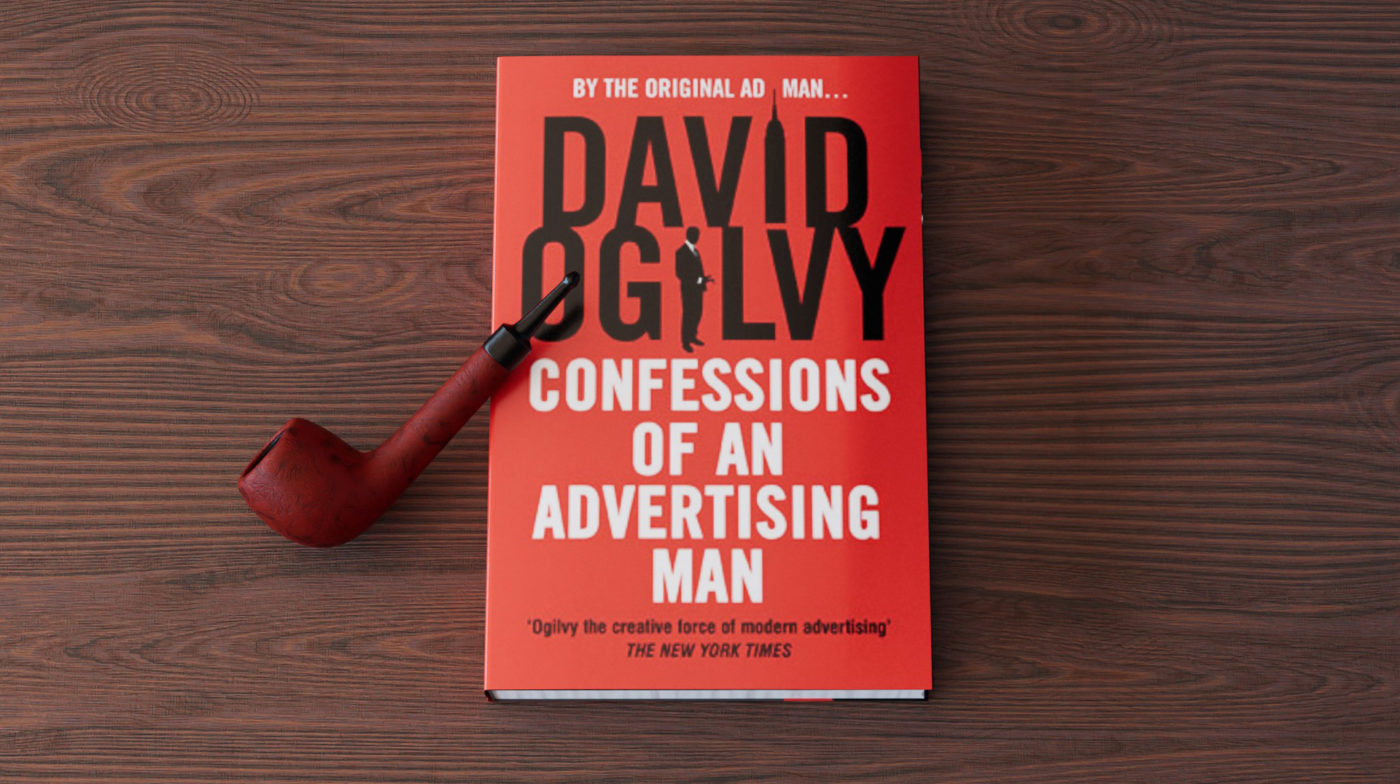
Confessions of an Advertising Man has wedged itself somewhere deep in my subconscious. This is surprising; I had never heard of David Ogilvy or his book. Come to find out, not only is it essential reading for advertisers, but an inspirational resource for the series Mad Men—which I never watched until now. I had been living under a rock, to say the least.
Confessions of an Advertising Man was published in 1963 but is still relevant. Not to say Ogilvy wasn’t a product of his time, fair warning. He speaks in definitives and is aggressively opinionated. However, the echoes of a bygone era were music to my ears.
What resonated most was Ogilvy’s approach to the advertising business. He had empathy for the creative, even though he despised the title. He believed in rewarding hard work but allowed time and space for genius to take place. He appreciated a non-conformist personality and felt it necessary to the process. He believed good ideas came from individuals, not teamwork, and to think otherwise was just a conspiracy of the mundane. He felt obligated to make socially responsible advertising. He despised the billboard and visual pollution. He believed in quality over quantity. He believed in a long soak in the bath and a good vacation.
In a world flooded with content, we need more David Ogilveys. For once, maybe we worry more about the substance of our content than if it will float to the top of social media currents. Imagine your brand as a fortified harbor, companies passing in the stormy night, pointing to your beacon as they latch onto the exhausted wreckage of a week-old trend. That’s the hope this book gave me.
No matter how naive and idealistic I may be, Ogilvy certainly was not. He understood that one had to do what was necessary to stay afloat and often did just that. Who can explain it better than the man himself? Without further ado, I give you my favorite quotes from Confessions of an Advertising Man:
After fourteen years, I have come to the conclusion that the top man has one principle responsibility: to provide an atmosphere in which creative mavericks can do useful work.
To be successful in the advertising world you must, of necessity, accumulate a group of creative people. This probably means a fairly high percentage of high strung, brilliant, eccentric nonconformists.
The pursuit of excellence is less profitable than the pursuit of bigness, but it can be more satisfying.
The day you get an account so big you can’t afford to lose it, you commit yourself to living with fear.
The product must be one which you would be proud to advertise.
A lopsided reputation of creativity disqualifies an agency from getting big accounts. But it is something you must risk if you are ever going to escape from obscurity.
A posture of enthusiasm is not always the one best calculated to succeed.
No advertising agent can serve two masters.
Succeed in public, but fail in secret.
Get in the habit of seeing clients when the weather is calm, you will establish an easy relationship which may save your life when a storm blows up.
It is important to admit your mistakes, and to do so before you are charged with them.
Advertising agencies make convenient scapegoats. It is easier to fire your agency than to admit to your stockholders that there is something wrong with your product or your management…many clients find it easy to blame their agency when sales go down, but are [meager] in giving credit to their agency when sales go up. This is unedifying.
Back-seat driving knocks the stuffing out of good creatives; if you do that, God help you…committees can criticize advertisements, but they should never be allowed to create them.
Good agencies should be paid at a higher rate than bad ones.
The consumer isn’t a moron; she is your wife.
What distinguishes the great surgeon is that he knows more than other surgeons. It is the same with advertising agents. The good ones know their craft.
Every advertisement should be thought of as a contribution to the complex symbol which is the brand image…it is the total personality of the brand rather than any trivial product difference which decides its ultimate position in the market.
It takes uncommon guts to stick to one style in the face of all the pressures to come up with something new every six months. It is tragically easy to be stampeded into change.
A steady diet of price-off promotions lowers the esteem in which the consumer holds the product; can anything which is always sold at a discount be desirable?
Always design your layout for the publication in which it will appear, and never approve it until you have seen how it looks when pasted into that publication.